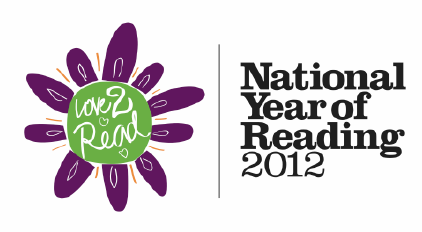Monday 1 October 2012
It’s the National Year of Reading, and Australia’s biggest book club is part of it—the Christian church. Every week, usually on a Sunday, this enormous group (9% of the population) gathers around the country in nearly 10,000 locations to read the same book: the Bible.
The Bible is a big book, and so most of these reading groups never finish. They just keep exploring the library of literature that is now known as the Holy Bible. Sometimes they are reading a piece of ancient poetry (such as found in the Psalms). On other occasions, they are eavesdropping on letters written in the first century by the earliest devotees of Jesus Christ. At most of these gatherings, people read a few selections from different parts of the Bible, think about what they mean, and chat over tea and coffee about what difference these books make. And they love it.
Well, that’s the theory. Bible Society Australia gathered together our research on Australian Bible reading habits and discovered that the lovers of the Good Book have lost the reading habit. Less than 20% of Australian Christians do any kind of regular Bible reading. When asked why, three responses stand out: “I don’t have time,” “It’s too hard,” and “I’m not sure how it’s relevant to daily life”.
I’m guessing that Christians are just like the rest of the population: out of practice when it comes to reading. Some, of course, are biblioholics. They know their Elijah from their Elisha, can recite chapter and verse from memory, and bury their faces in their books, smartphones and online Bibles at every opportunity. But if the stats are correct, the vast majority of Christians struggle to do the reading they would like to do, just like everyone else.
The National Year of Reading gives us all an opportunity to act on our desire to read. Coupled with mobile technology, we have never been better equipped to do the reading we want to do. I can steal moments on a train, reading on my device. I can get access to the journals, magazines and newspapers of the world at a click of my mouse. I just need to get into the habit of doing it.
It’s the same for those who love the Bible. They need to build a habit in a world that makes habit-building difficult. All the distractions of life mean that Christians often neglect what they consider to be their source of wisdom, comfort, encouragement and insight. This is crazy, and we know it.
You don’t have to be a Christian to enjoy reading the Bible. In fact, unless you are familiar with the Bible you will struggle to grasp the wealth of the literary tradition, especially Western literature. It is soaked in biblical imagery, characters and allusions. I still think it is unforgiveable that children emerge from school today with almost no basic education in the Bible. And yet everyone acknowledges that, regardless of religious perspective, the Bible is the background text of our culture.
In the National Year of Reading, Bible Society is urging Aussie Christians to build their Bible reading habit, starting with just 25 words of reading every day in October. We hope the habit will grow from there. It’s a low bar, but the fact that the Bible is divided into verses of around 25 words in length makes it a natural way to get going. 25 words of Shakespeare would probably do a similar thing for disciples of the Bard.
If reading matters, then reading the Bible matters. Around the world, literacy often arrived through the work of Christian mission. It was the Christian monasteries of Europe that developed the Western reading culture, championing the inscription of everyday oral traditions so everyone would have ongoing access to emerging new world of books.
Reading, and reading the Bible, have a long history together. And they are still side by side today: Bible Society works in consultative partnership with UNESCO, funding 150 literacy projects in 70 countries.
And yet, we relatively educated Aussies struggle to get into the Book. Hopefully, the National Year of Reading, coupled with a push to get started with just 25 words a day, will recover the love of reading and the experience of the Bible as (in the Psalmist’s words), “more precious than gold and sweeter than honey”.
Greg Clarke is CEO of Bible Society Australia and is currently speaking around Australia as part of 25words.biblesociety.org.au.
Email This Story
Why not send this to a friend?
